Shanghai’s ‘voguing’ dancers step lightly to avoid official gaze
Feeling under pressure from repressive authorities, China’s LGBT+ culture finds a way underground
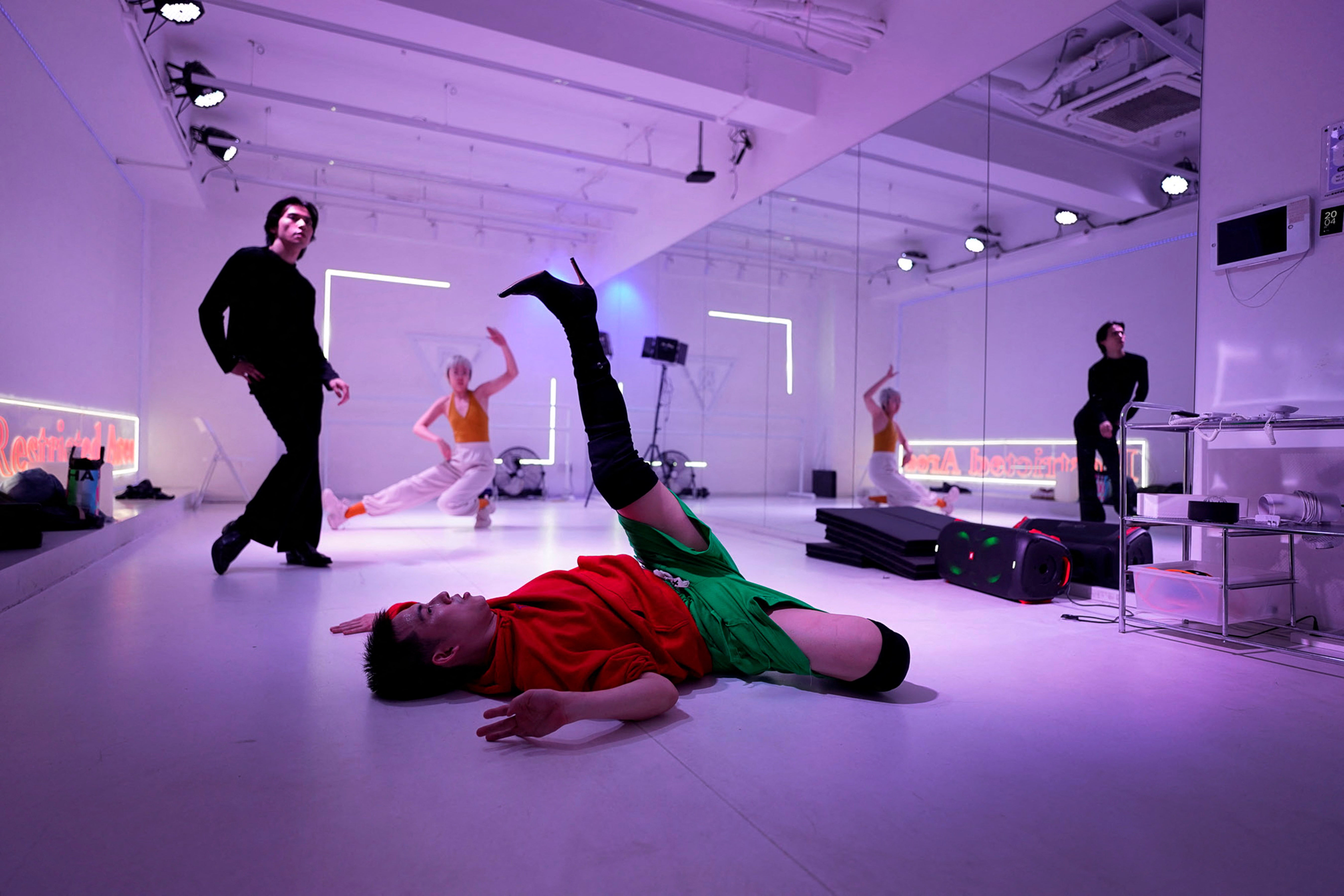
Your support helps us to tell the story
This election is still a dead heat, according to most polls. In a fight with such wafer-thin margins, we need reporters on the ground talking to the people Trump and Harris are courting. Your support allows us to keep sending journalists to the story.
The Independent is trusted by 27 million Americans from across the entire political spectrum every month. Unlike many other quality news outlets, we choose not to lock you out of our reporting and analysis with paywalls. But quality journalism must still be paid for.
Help us keep bring these critical stories to light. Your support makes all the difference.
Two hundred people gathered in a club in a basement in China’s financial capital, many dressed in red and black latex with corsets and fishnet stockings, to cheer competitors who sashayed and danced down a red carpet under the scrutiny of judges.
Events like these, known as “balls”, celebrate a subculture centred on the LGBT+ community that dates from mid-20th century dance halls in New York’s Harlem, before being adopted by queer communities of colour in the 1980s.
“I think the biggest difference in voguing is that you need to dance your own self, the deepest you want to express,” says Sui Kawakubo, a member of the Kiki House of Kawakubo, one of the city’s key voguing “families”, as they describe themselves.
Voguing is a dance style characterised by staccato hand motions and angular arm and body postures punctuated by brief pauses, much in the manner of a model posing for photographs.
“I wouldn’t say voguing has made me an extrovert, but it allows a new me to emerge,” adds Kawakubo, a self-proclaimed introvert who uses a stage name chosen as a tribute to Japanese fashion designer Rei Kawakubo to protect his privacy.
With trophies awarded for categories such as “Femme Queen Performance”, “Couple Realness”, “Face” and “Body”, the events are part dance competition, part fashion show and part judged performance art.
Popularised in 1990 by a hit Madonna song and the documentary, Paris is Burning, the trend has drawn adherents in China too, with Shanghai’s first such event organised five years ago.
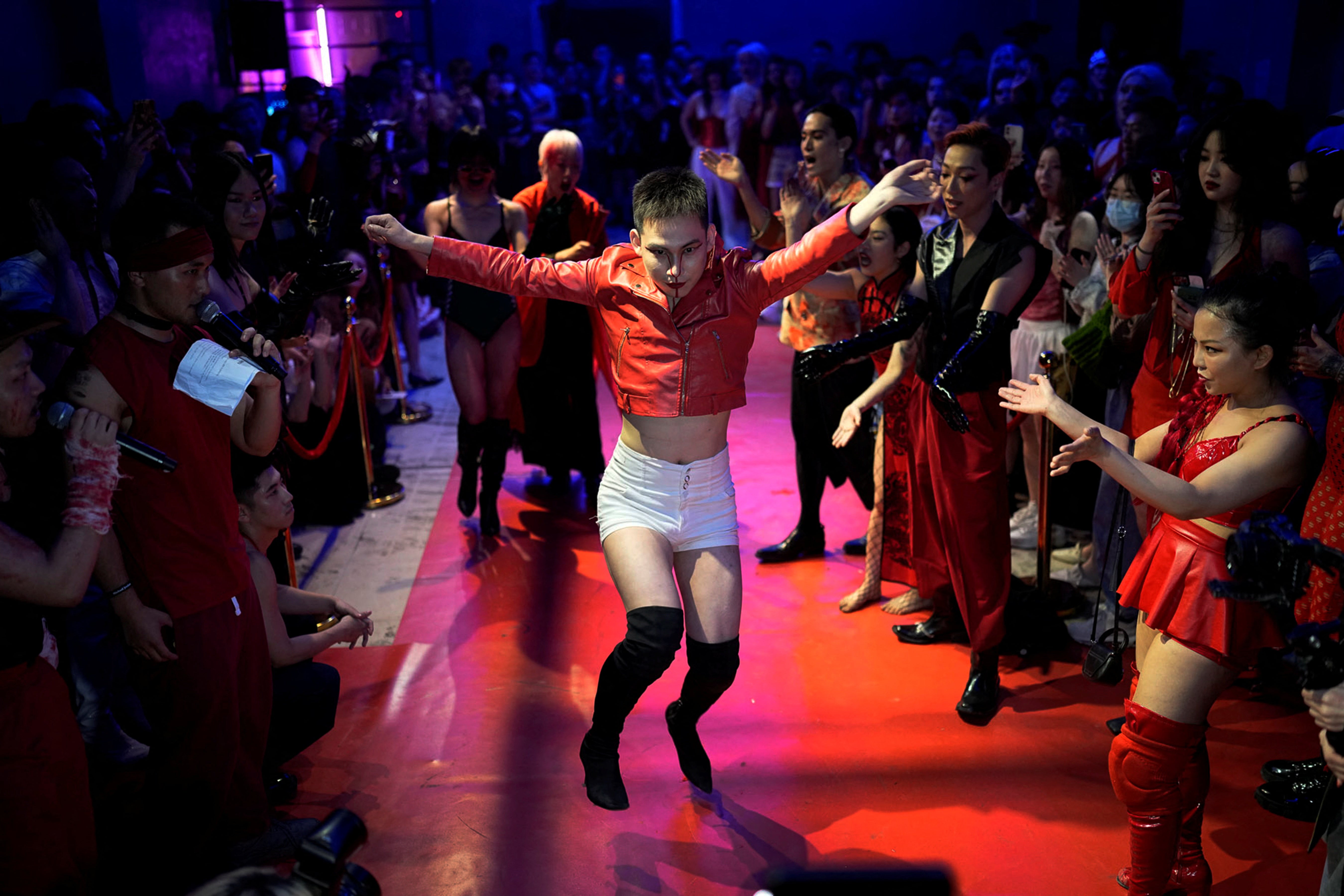
VJ Kawakubo, 30, was one of the city’s earliest adopters of voguing, being drawn to a dance class seven years ago to eventually become one of its best-known exponents, figuring in marketing for brands such as Calvin Klein and magazine spreads.
Although the performance aspect of voguing is important, he says, its ability to bring people together gave the scene deeper meaning.
“If you are just dancing by yourself, there is no meaning in that,” says VJ, who also asked to be identified only by his stage name. “The most important thing for me is that it’s a comfortable environment.”
The future for such activities looks increasingly uncertain in China, however, as authorities touting socialist values step up censorship of LGBT-related content.
Tutu
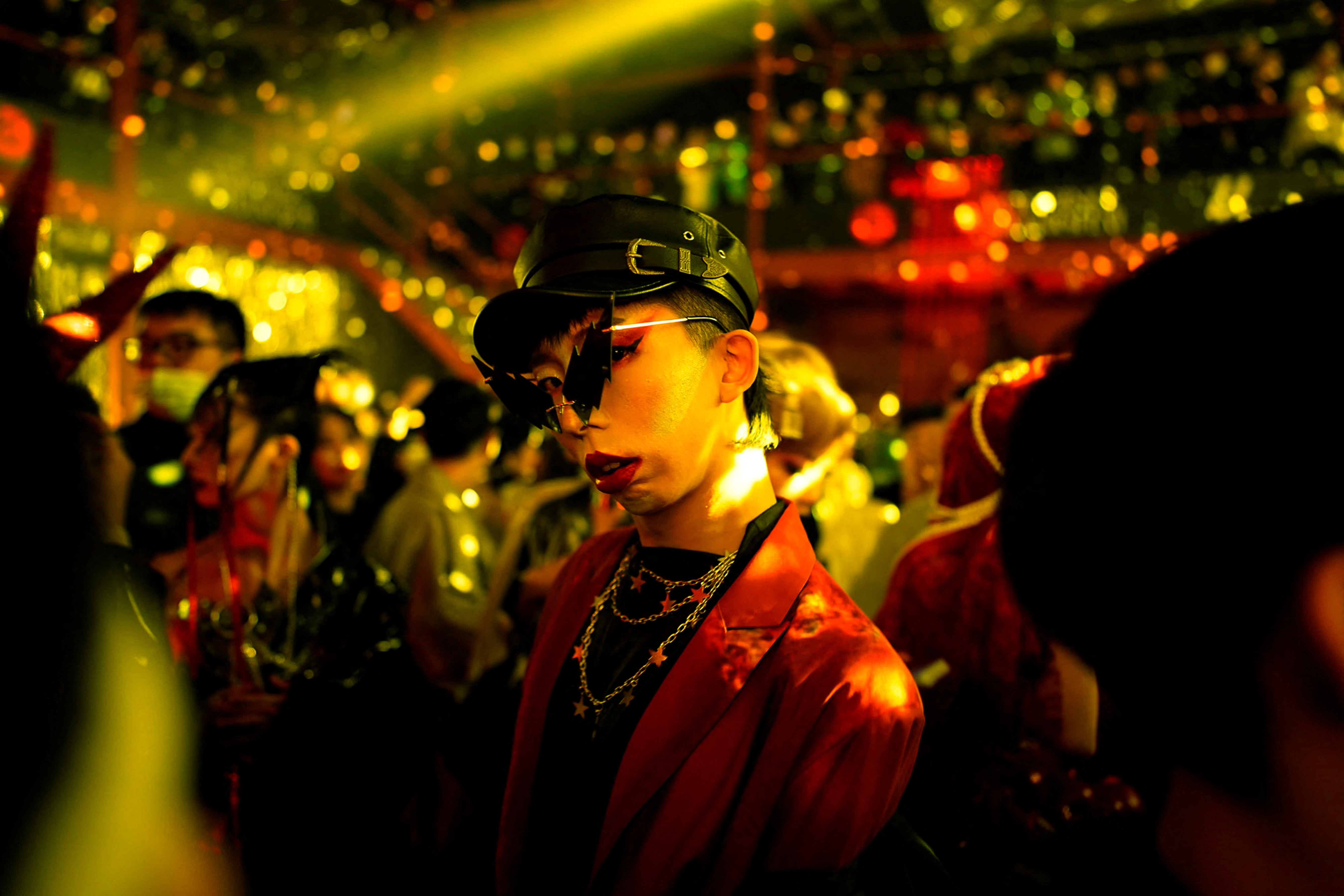
MissGengDiva
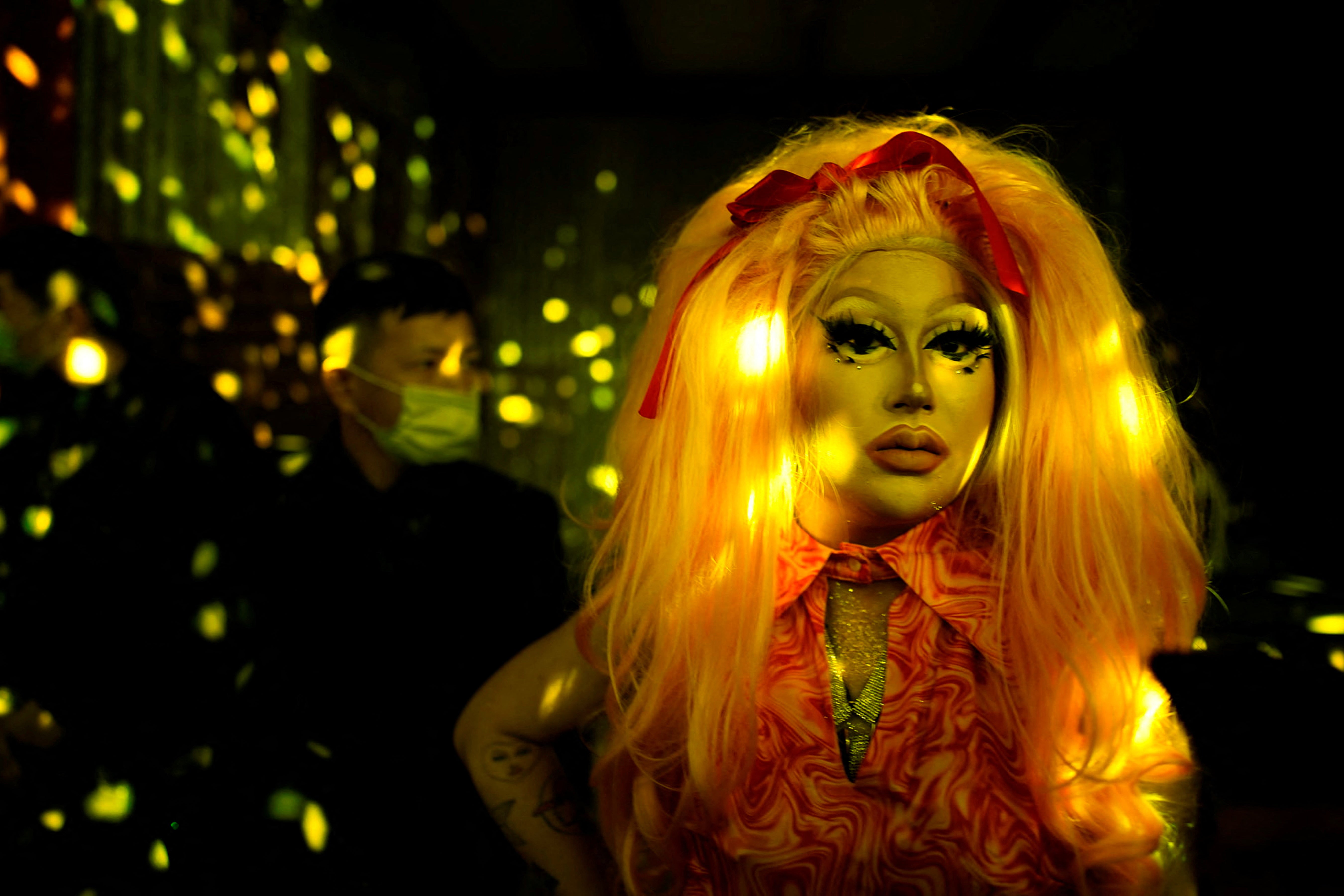
Volta
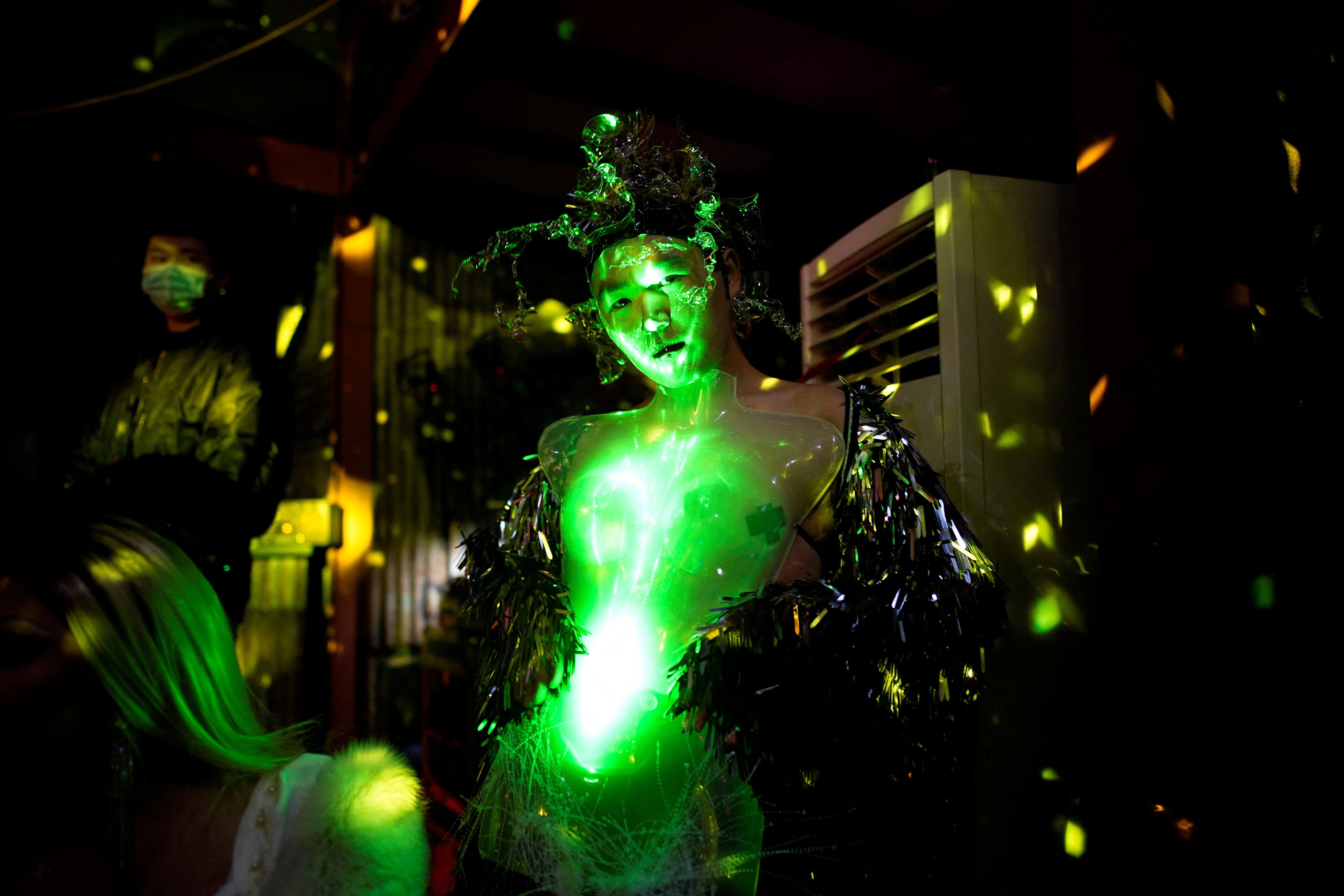
Sui Kawakubo
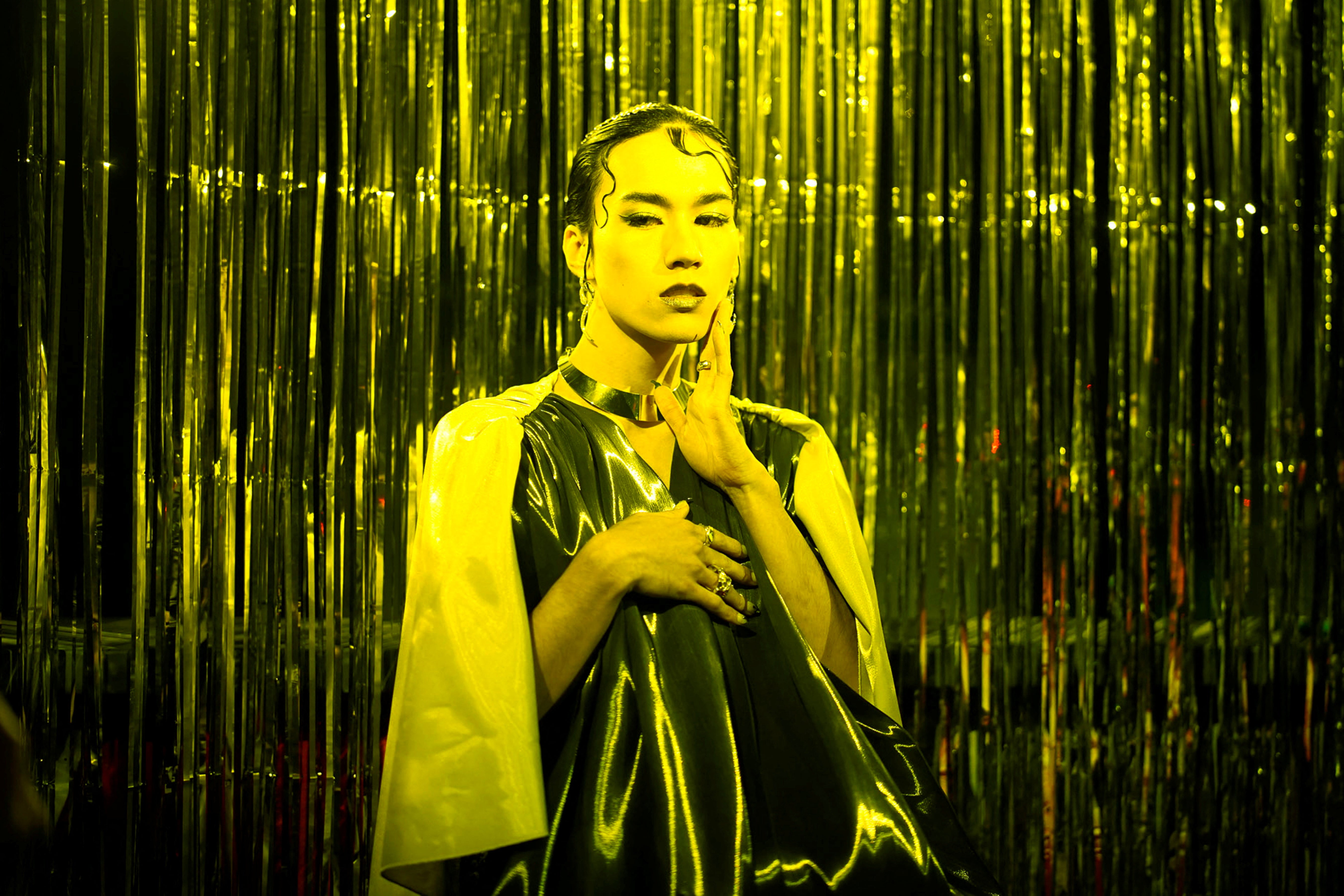
Yida
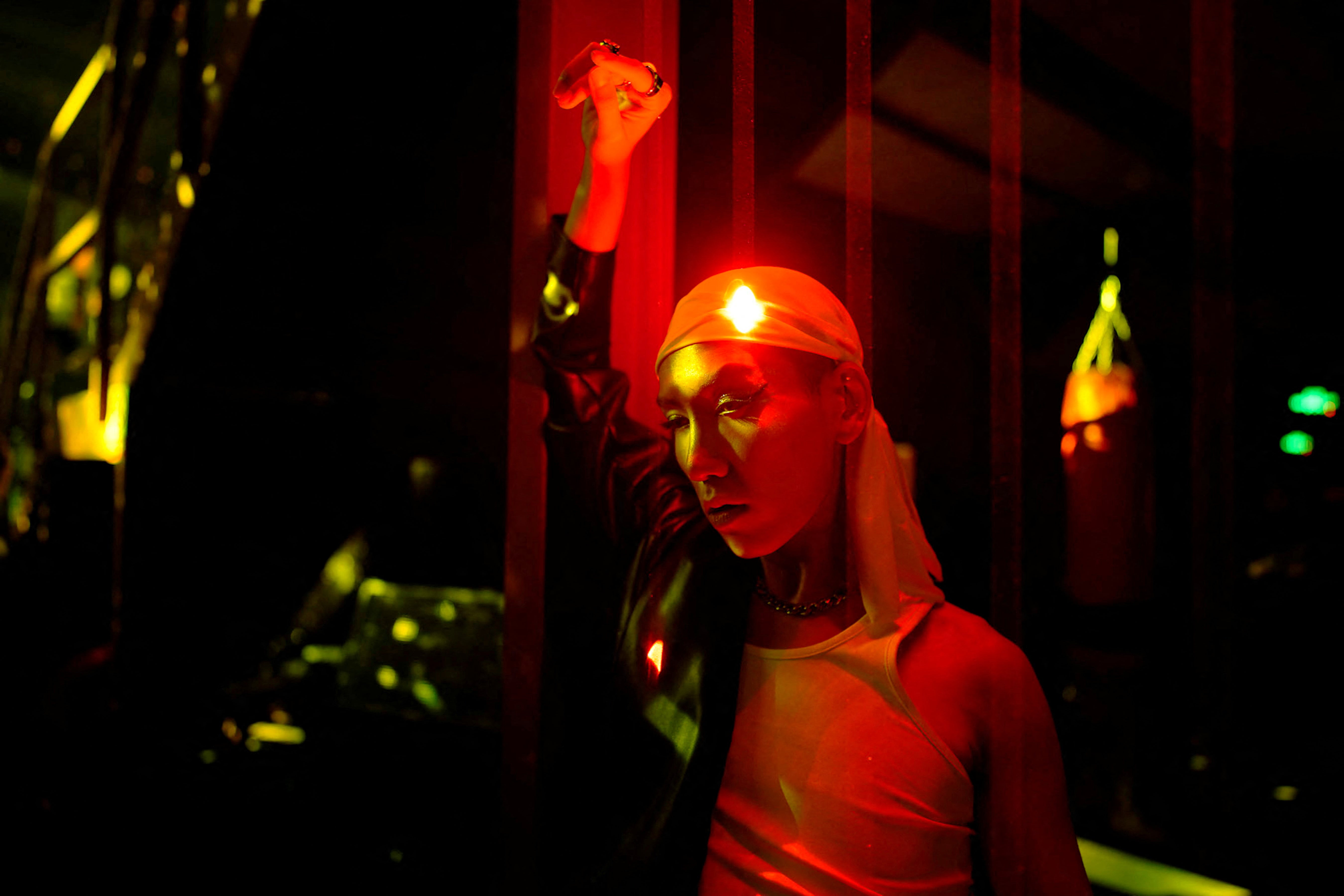
Difficult Environment
Even in Shanghai, China’s most international city, the environment remains complex for the LGBT+ community, says VJ, who grew up in a small village in the eastern province of Zhejiang.
“It’s both more inclusive but still quite conservative,” he said, as international influences jostle with China’s traditional values.
In 2020, citing an increasingly difficult environment, Shanghai Pride halted its activities after having run successfully for a decade. In May, Beijing’s 15-year-old LGBTCenter also shuttered for undisclosed reasons.
“The government sees strengthening the national power, the national rejuvenation, as the most important thing,” says Hongwei Bao, a researcher in LGBT+ visual and performance culture at the University of Nottingham.
“That disconnects from younger people’s desire to express themselves freely, to pursue their lifestyles, personalities, and individualities.”
Such campaigns render the existence of voguing in Shanghai both more precarious and more vital in the community.
“I really don’t know about the future,” VJ says. “I still have hope that society can become more tolerant and more accepting.”
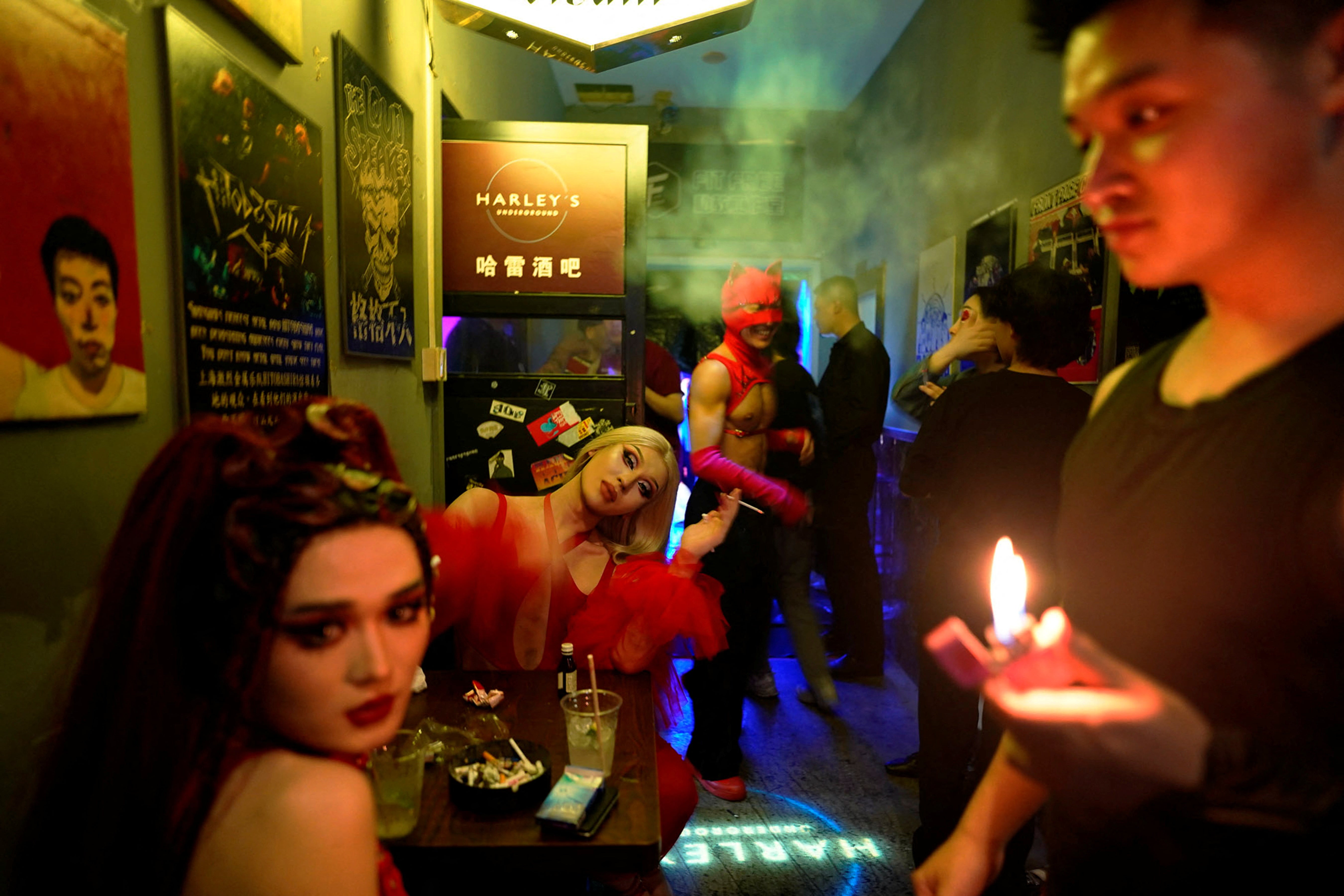
While showing off is certainly on the agenda, the events are often publicised only in a discreet way, with some last-minute switches of location to avoid authorities’ attention.
Loud music and cheers greet the competition portion of such events, when contestants line up by category to be winnowed by the judges before the final few battle for the winner’s trophy.
Regardless of experience, contestants were unfailingly greeted warmly by a crowd that seemed pleased and excited to find itself in a rare pocket of expressive freedom and fluidity.
“The reason many people come here is not just to have fun,” says a 27-year-old who goes by the stage name Tinora Kawakubo.
“They might say they are escaping an environment that does not allow them to express themselves.”
Photography by Aly Song
Reuters
Join our commenting forum
Join thought-provoking conversations, follow other Independent readers and see their replies
Comments